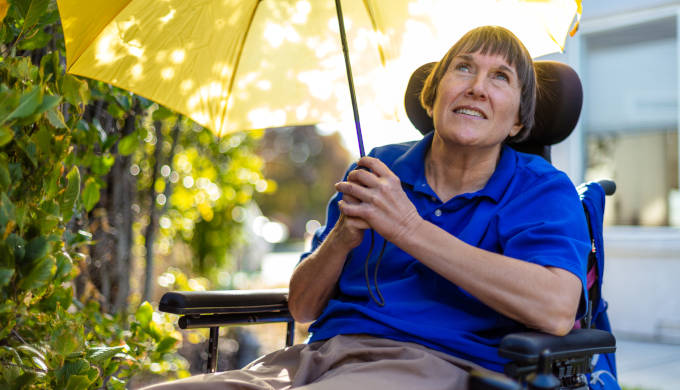Study shows real-world benefits of onasemnogene abeparvovec in younger SMA patients

Lena-Luise Becker discusses findings from a real-world study showing that spinal muscular atrophy patients younger than 8 months of age are the most likely to benefit from onasemnogene abeparvovec, while those older than 24 months have a lower likelihood of treatment response and a higher risk for side effects (4:22).
IND-enabling studies support further evaluation of SMARD1/CMT2S gene therapy

Kathrin Meyer talks about IND-enabling efficacy and safety studies of IGHMBP2 gene therapy in animal models spanning the disease spectrum of spinal muscular atrophy with respiratory distress type 1/Charcot-Marie-Tooth disease type 2S, the results of which support progression into phase 1 and 2 clinical trials (2:46).
JNK inhibition shows promise for SMA

Laxman Gangwani outlines the results of a preclinical study showing that JNK inhibition is a promising therapeutic strategy for spinal muscular atrophy, and discusses how this approach might impact the treatment landscape if shown to be beneficial in clinical trials (4:22).
Support for onasemnogene abeparvovec in older SMA patients

Laurent Servais discusses real-world research suggesting that onasemnogene abeparvovec is beneficial in spinal muscular atrophy patients aged 6 months and older, supporting the results of clinical trials involving younger patients (4:13).
Newborn screening linked to earlier diagnosis, treatment of SMA

Laurent Servais talks through the findings of a real-world study showing that newborn screening for spinal muscular atrophy is associated with earlier diagnosis and treatment, and better outcomes, when compared with clinical diagnosis (4:41).
Onasemnogene abeparvovec may be beneficial for bulbar function in SMA type 1

Katlyn McGrattan talks about a post-hoc analysis demonstrating that treatment with onasemnogene abeparvovec can achieve good bulbar function in patients with symptomatic SMA type 1 (3:55).
EAN 2020 | Ongoing reporting supports long-term safety of ocrelizumab in MS

Stephen Hauser reports the ongoing safety data for ocrelizumab in patients with relapsing or primary progressive multiple sclerosis, including preliminary post-marketing experience of a small group of patients with COVID-19 (5:13).
EAN 2020 | Ocrelizumab benefits in MS extend to patients with previous treatment failure

Bianca Weinstock-Guttman presents the 2-year CHORDS study findings showing good outcomes among patients with relapsing-remitting multiple sclerosis receiving ocrelizumab after a suboptimal response to previous disease-modifying therapy (3:17).